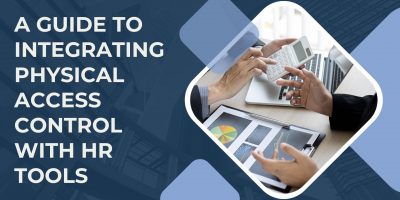
Free Genealogy Software You Can Use in 2024
Explore free genealogy software solutions and their helpful features to discover more about your family roots and ethnicity.

Successful startup founders often attribute their success to having the right team.
In fact, early hires can significantly influence a startup’s growth trajectory. While recruitment is vital for companies of all sizes, having a great team can mean the difference between success and failure for startups.
In a rush to grow a startup, streamlining a process that is notoriously known to be time-consuming and paper-intensive is imperative to success. HR software enables companies to find candidates quickly and efficiently, even with a limited budget, and save precious resources.
This article explains how to select the right HR software and provides an overview of the best HR software for startups, including tips for successful implementation.
Due to a startup’s small size, one employee has the power to drive growth and boost business results. At the same time, they can potentially disrupt the workflow and order of the business as a whole.
The cost of a bad hire is far greater for startups as they stand to lose a significant amount of investment, so hiring the right candidate can be a make-or-break decision. With the stakes so high, startups need to implement a robust hiring strategy to reduce the risk.
However, startups face many unique challenges and have distinct needs that require a tailored approach to recruitment.
One of the biggest challenges young companies face during the initial hiring stages is a lack of resources and tight budgets. As soon as they launch in their market, startups usually need more money to make significant investments and procure expensive tools.
Undoubtedly, their resources will remain limited for a certain period, impacting all processes – including hiring.
Most startups will need help to afford top talent or market salaries, so they will be limited to an existing network, even if they’re entering a new industry. However, this network alone won’t be enough to attract and source market talent. Therefore, they remain disadvantaged and have more difficulty recruiting the right talent for their business type and positions.
Due to the fast-paced nature of the startup environment, they need to be able to move quickly when hiring new employees.
Whereas large corporations can have some positions unfilled for months, small businesses just starting out aren’t afforded the same luxury.
In many cases, startups need to fill multiple openings within weeks or even days, which translates to being able to identify, attract, and hire the correct candidates. During the beginning stages, a startup company will have a lot of documentation and work pending, so they will need to hire as quickly as possible and efficiently manage their time.
However, as stated previously, startups should maintain the quality of their employees. In fact, the first people hired in the company play a significant role in shaping the future and success of the company.
Unstructured and undefined hiring processes are one of the key challenges that need to be addressed by most startups. A lack of clarity and a pre-defined hiring strategy often frustrate prospective recruits and, eventually, have consequences for the business.
For these reasons, startups need to construct a hiring plan before they start the recruitment process to hire candidates that match their requirements in the long term.
The mistake that many “new” companies make is postponing software purchases until a problem arises and it becomes necessary.
Instead, by investing in the right human resource software and tools, startups can build effective processes with clear communication early on, which is a huge advantage.
In the early stages of a startup, the hiring duties may fall on the founder or another manager tasked with recruitment.
However, without a dedicated HR team, it may be a challenge to define the roles a company is hiring for and attract a diverse pool of applicants to grow the company.
With the rise of new technological advancements in artificial intelligence (AI) and robotics, skills and roles are becoming even more specialized. Therefore, finding qualified candidates with relevant skills is one of the most prominent challenges startups will face.
More than half (53%) of hiring managers stated that sourcing the right talent with the right skills is their biggest challenge. This highlights the need for more innovative recruiting solutions like candidate sourcing tools to make the process more successful.

Managing the hiring process, onboarding new employees, and ensuring smooth HR operations can be overwhelming for any company without the right tools.
HR software designed specifically for startups can streamline these processes, saving time and resources while improving overall efficiency.
Below are some of the features that startups should consider when selecting business software.
An Applicant Tracking System (ATS) is a fundamental feature of HR software for startups.
It automates and streamlines the hiring process by managing job postings, tracking applicants, and facilitating collaboration between hiring managers and recruiters.
For startups, an ATS provides numerous advantages.
It helps reduce manual effort and paperwork by centralizing all applicant data, making it easily accessible to the hiring team.
Additionally, applicant tracking software ensures compliance with hiring regulations and maintains a consistent and fair hiring process.
Manual resume screening can be time-consuming and prone to errors, so startups should seek HR software that offers robust resume screening capabilities.
Resume screening features in HR software streamline the hiring process by automatically extracting relevant information from resumes, such as education, skills, and work experience.
This saves recruiters significant time and allows them to focus on evaluating candidates rather than sifting through piles of resumes.
HR software with automated resume parsing technology can quickly analyze and categorize resumes based on predefined criteria.
This enables startups to identify top candidates promptly and shortlist them for the interview process.
Scheduling interviews can be tedious, especially when dealing with multiple candidates and busy interviewers’ schedules. As many as 87% of HR managers report that automated interview scheduling improves recruitment.
In other words, HR solutions that offer interview scheduling capabilities can simplify this process and ensure smooth coordination.
With this feature, startups can easily schedule interviews, send automated invitations and reminders to candidates and interviewers, and manage all interview-related communication in one place.
This eliminates the need for back-and-forth emails or phone calls, streamlining the process.
Efficient employee onboarding is crucial for startups to set the right tone and provide a smooth transition for new hires. Onboarding software that offers both onboarding and employee orientation modules can significantly enhance this process.
Startups need HR software that allows them to create customized onboarding workflows tailored to their specific needs.
This includes automating paperwork, providing new hires with important information and resources, and tracking their progress through onboarding.
Integration with other HR systems, such as payroll and benefits administration, is beneficial to streamline the onboarding process. This ensures that employee data seamlessly flows from onboarding to other HR functions, reducing manual data entry and the chances of errors.
Data-driven decision-making is essential for startups to understand their workforce, identify trends, and make informed HR decisions. HR software with robust reporting and analytics capabilities can provide valuable insights.
Look for HR software that provides intuitive and customizable data dashboards, allowing startups to visualize key HR metrics in real-time.
The ability to create custom reports and drill down into specific data points empowers startups to gain deeper insights into their workforce and identify areas for improvement.
Here are overviews of key features, pricing, and user reviews for three popular HR software options for startups: Oyster HR, Rippling, and Greenhouse.
Oyster HR is a suitable HR platform for startups and small businesses. It offers a range of features to streamline HR processes and manage employee information effectively.
Key Features:
Pricing: Oyster HR offers three plans: for contractors, employees, and a customized plan. Pricing starts at $29 per contractor and runs between $499-$699 for each employee per month.
User Reviews:
Rippling is an all-in-one HR platform that combines HR, payroll, benefits, and IT management features. It caters to the needs of startups and provides a comprehensive solution for managing employee information.
Key Features:
Pricing: Rippling offers tiered pricing based on the number of employees. Pricing starts at $8 per employee per month, with additional charges for payroll and benefits services.
User Reviews:
Greenhouse is another popular HR software option known for its applicant tracking system (ATS) and recruitment features. It offers various functionalities such as job posting, candidate tracking, interview management, and analytics.
Key Features:
Pricing: Greenhouse offers pricing plans based on the specific needs and size of your organization. It’s best to contact their sales team or visit their official website for detailed pricing information.
User Reviews:
Overall, Oyster HR, Rippling, and Greenhouse are all reputable HR software options for startups. The choice among them depends on specific requirements, budget considerations, and the desired feature set. It’s recommended to explore demos, trial versions, and customer reviews to determine which software aligns best with your startup’s needs.
With numerous options available in the market, choosing the best HR software can be a daunting task. When comparing the best HR software for startups, it’s important to consider the following factors:
Implementing HR software can be a complex process, but companies can ensure a successful implementation with the right approach.
Here are some tips for you to consider.
Before implementing HR software, it’s crucial to involve and engage all relevant stakeholders. This includes HR professionals, senior management, IT teams, and end-users.
Communicate the benefits of the software and address any concerns or resistance they may have. Their buy-in and support will greatly increase the chances of successful implementation.
Training is essential to ensure all employees understand how to use the HR software effectively.
Provide comprehensive training plans tailored to different user roles and responsibilities, including training materials, user guides, and access to a help desk or support team to address any questions or issues that arise.
Continuous training and refresher sessions should also be offered to address any updates or new features.
Implementation is not a one-time event. Regularly evaluate how the software is functioning and identify areas for improvement. Collect feedback from users and analyze key metrics to assess the effectiveness of the software.
This feedback loop will help refine processes, optimize workflows, and ensure the software aligns with evolving organizational needs.
HR software often deals with sensitive employee data, so it’s crucial to prioritize data security and privacy. Implement appropriate security measures such as encryption, access controls, and regular data backups.
Comply with relevant data protection regulations, such as GDPR or CCPA, and regularly review and update your security practices to stay current with evolving threats. Communicate your commitment to data security to instill trust among users.

On a final note, when it comes to selecting the best HR software for startups, it’s crucial to consider specific needs and requirements.
Startups should assess factors such as scalability, user-friendliness, integration capabilities, and cost-effectiveness.
It’s important to remember that a streamlined hiring process sets the foundation for a successful business journey.
By leveraging the power of the best HR software for startups, companies can optimize their hiring efforts, build a strong team, and propel their startup toward long-term growth and prosperity.
Senior Content Writer at Shortlister
Browse our curated list of vendors to find the best solution for your needs.
Subscribe to our newsletter for the latest trends, expert tips, and workplace insights!

Explore free genealogy software solutions and their helpful features to discover more about your family roots and ethnicity.

Explore the seamless integration of physical access control with HR tools in our informative guide. Learn how to optimize security measures and create effective desk management systems for a more efficient and secure workplace environment.

A company is only as good as its workers. Thus, its potential undoubtedly increases with a high-quality onboarding program.
Streamline attendance management and boost productivity with these cutting-edge solutions for businesses of all sizes.
Used by most of the top employee benefits consultants in the US, Shortlister is where you can find, research and select HR and benefits vendors for your clients.
Shortlister helps you reach your ideal prospects. Claim your free account to control your message and receive employer, consultant and health plan leads.